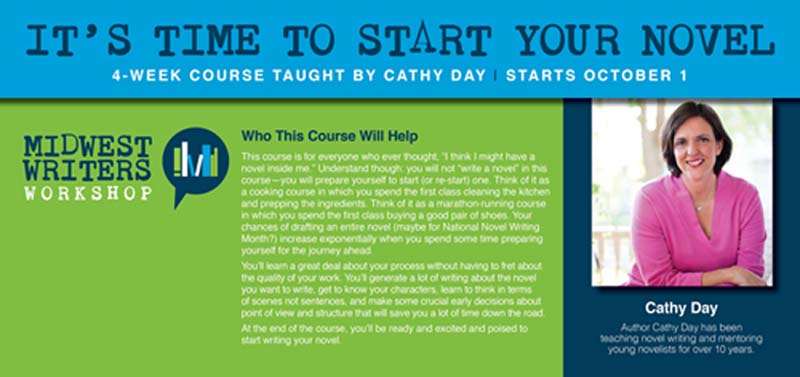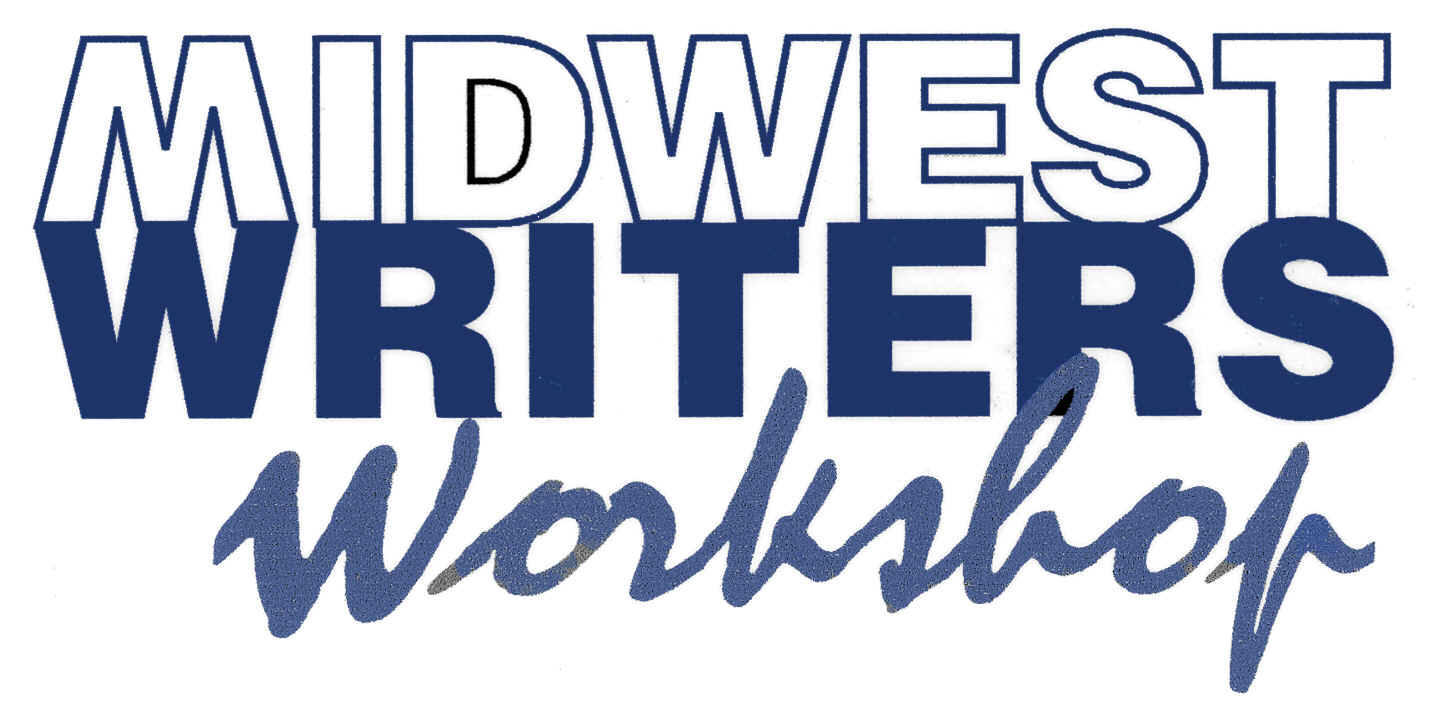Less than a quarter of the people who start NaNoWriMo actually finish the challenge and write 50,000 words. Your chances of finishing a crappy first draft of a novel in November are greatly improved if you prepare in October.
That’s what my class for Midwest Writers Workshop, “It’s Time to Start Your Novel,” is all about.
Registration is now available!
Starts October 1.
Testimonial
A few years ago, I offered a version of this course via my blog, and I’m so pleased that my friend Gail Werner challenged herself to dive in. I think it really changed her life.
Here’s her story of how it happened.
Course Description
This course is for everyone who ever thought, “I think I might have a novel inside me.” Understand though: you will not “write a novel” in this course–you will prepare yourself to start (or re-start) one. Think of it as a cooking course in which you spend the first class cleaning the kitchen and prepping the ingredients. Think of it as a marathon-running course in which you spend the first class buying a good pair of shoes.
Your chances of drafting an entire novel increase exponentially when you spend some time preparing yourself for the journey ahead.
You’ll learn a great deal about your process without having to fret about the quality of your work. You’ll generate a lot of writing about the novel you want to write, get to know your characters, learn to think in terms of scenes not sentences, and make some crucial early decisions about point of view and structure that will save you a lot of time down the road.
At the end of the course, you’ll be ready and excited and poised to start writing your novel.
Learning Goals
- intense focus on the writing process and on developing a writing regimenwriting assignments which will help you gather material, develop your plot, and get to know your characters
- practice creating an outline or storyboard of your book
- analysis of a novel that will serve as a model
The course is broken down into four big-picture units. Each unit offers a series of mini-lessons (about 10 minutes each) that build on each other. It will take you about five full hours to go through all of the instruction. You can pause to write when inspired and review the material on your own. Lessons are presented as audio-visual lectures that you can watch on any device (video/screencast).
What the Course Includes
- Four hours of instructional lectures that you can listen to or watch on your own time, at your own convenience
- Weekly assignments for completion at your own pace—designed to help you put what you learn into action.
- Connection and community with others—including me.
Schedule
Week 1: Preparing Yourself
First, you’ll develop a writing regimen and come up with a concrete plan about how to fit writing time into your life. Second, you’ll figure out how to hold yourself accountable by sharing your writing goals with others. Third, you’ll assess your writing process (everyone’s different) and what circumstances make you more likely to get the writing done. And last, you’ll read the short novel Election by Tom Perrotta, paying special attention to how novels are structured and what keeps us turning pages.
Week 2: Characters
Eudora Welty said that in order to enter into your characters, you have to love them. In this unit, we’ll begin that process by getting to know our characters. They drive the plot—not you. Otherwise, a novel reads like a puppet show in which the reader sees you pulling the strings. You’ll complete a series of writing exercises to flesh out and get inside your characters.
Week 3: Through-lines
A novel isn’t just one story. It’s the skillful weaving together of multiple stories, what I call “through-lines.” Other names include character arcs, plot layers, and subplots. A through-line is the rope that the audience uses to pull itself through your novel. How you decide to structure them determines the form of your novel. You’ll identify the possible through-lines of your novel, assign each one a different color, and create a storyboard of your novel.
Week 4: Scene
The scene is the building block of all novels, and a good one enriches the characters, provides necessary information, and moves the plot forward. A scene paints a picture and brings us into what John Gardner called “the vivid, continuous fictional dream.” What novel readers want is to be so caught up in a novel that they forget they’re reading. You’ll learn how to sketch and then flesh out memorable scenes.
I’d love to work with you (or someone you know) through this online class.



